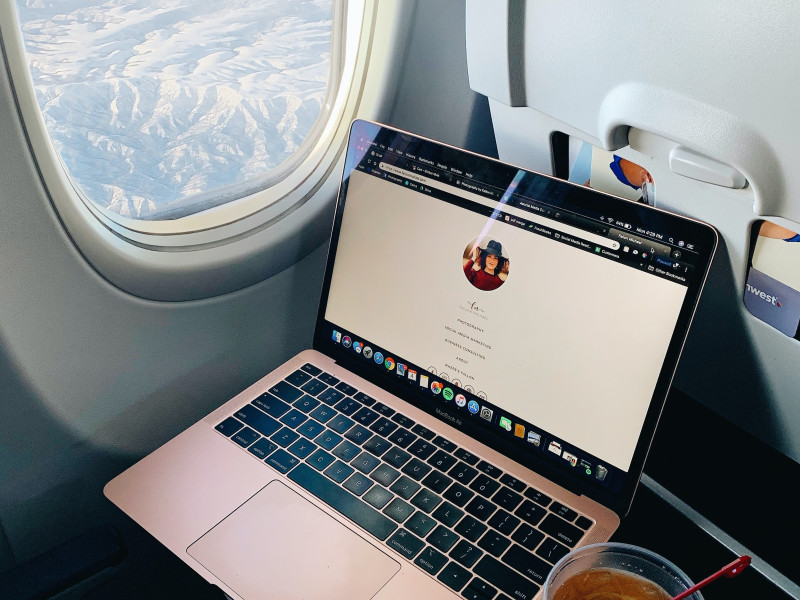How Not to Get Hosed by Airlines, Change and Cancellation Fees
Do you have a love-hate relationship with airlines? Do you hate the high change and cancellation fees that they charge but still fly them anyway? We do too. In this article, we will talk about how to avoid these fees when possible so that your wallet doesn't get hosed in the process.

When an airline changes or cancels a flight because of weather, crew scheduling, maintenance or another reason, you as the passenger are rarely offered compensation. However, when you need to change or cancel your own reservations, you can be hit with huge fees. While most airlines have eliminated change/cancellation fees during the pandemic, that is likely to change soon as vaccination rates increase and travel demand resumes.
Thankfully, there are some tricks to minimizing or avoiding these fees on paid flights altogether, especially if you were scheduled to travel during the ongoing pandemic.
Keep an eye out for schedule changes
Airlines are incentivized to issue travel waivers during times when they anticipate significant numbers of cancellations or delays. For example, during bad weather, natural disasters or — more recently — virus outbreaks, many airlines will adjust their operations, and they’d rather provide flexibility for travelers in advance than try to accommodate you at the airport.
They may also waive change fees.
So keep an eye out for schedule changes, and call your airline to confirm what they offer during the pandemic or other extreme circumstances. You might be pleasantly surprised with some wiggle room!
The downside is that this can mean you have nothing but a seat back in coach without access to advance boarding, priority check-in, upgrades or complimentary checked bags when you land. And there’s always the risk of getting bumped from your flight altogether if it fills up before departure day arrives. But at least you won't get hit with any sudden fee surprises later on — which brings us to our next tip...
Remember the 24-hour rule
Airlines are required by law to offer free 24-hour holds or refunds within 24 hours of booking as long as the flight is more than seven days in the future. That means you can ask for a free refund or hold on your reservation without any penalty until the following day.
So if there's an emergency and you need to change or cancel your flight, give yourself at least 24 hours from when it was booked and take one of those two options before coming up with something else! And while we’re talking about emergencies... It may be time to start thinking outside the box in other ways as well...
Consider booking one-way tickets vs. round-trip flights
Most airlines charge the same total price for a single round-trip ticket and two one-way tickets booked together. However, the implications for change fees can be dramatically different.
Some airlines refund the first ticket without penalty when you cancel, while others charge a fee or require that your second booking be at least $250 more than your original. With one-way tickets, there are no penalties for canceling either of them independently.
You'll also save money on luggage fees and airline change fees if it turns out things work out better with just one return flight instead of two! You may only need to purchase emergency travel insurance in this case which would cover the cost for both flights as long as they're canceled within 24 hours from booking time or before departure day (check our article about how to buy affordable travel insurance here).
Have a good reason
Travelers who experience illness, death in the family or other extraordinary circumstances like a natural disaster can have their charges waived. It is important to keep all relevant evidence on hand when trying to make this request since most airlines will request proof.
Consider your credit card coverage
If you have a travel rewards or airline credit card, the trip cancellation and interruption insurance included will help avoid paying a fee if you need to cancel your reservation. Frequent flyers are used to airlines canceling or changing flights. For overworked travelers, these turn-around changes can be just what the doctor ordered — but it's always nice to know when you're covered in case the bills leave you feeling drained. For example, if you have a covered reason (such as jury duty or serious illness) for needing to cancel or change your trip and you booked with the Chase Sapphire Reserve, you’re eligible for up to $10,000 in reimbursement per trip.
Earn elite status
One of the most coveted benefits of elite airline status is that some tiers will waive change and return flight fees on award tickets. Some — most notably Jet Blue and Alaska — even offer these waivers on paid tickets.
There are a number of ways to earn elite status, including the following:
Fly 25 segments in one calendar year with Alaska Airlines Elite 25K or higher
Earn 75,000 qualifying miles on any American Airlines partner airline (American often has cheaper fares than its competitors)
Earn 50,000 tier qualifying points
We could on, but if you are a frequent flyer and want the benefits of trip protection and lower fees, elite status is a must.
Bottom line
Trying to change or cancel a flight can be stressful even for good reasons, but it is especially hard if you are traveling with your family on vacation. To make matters worse, doing so may result in a large change or cancellation fee, so it’s always good to know your options for avoiding these fees when you can.




![Finance Info in [city]](/image/cta/1e3192f6952642bb8c9d257182e5ff42)





